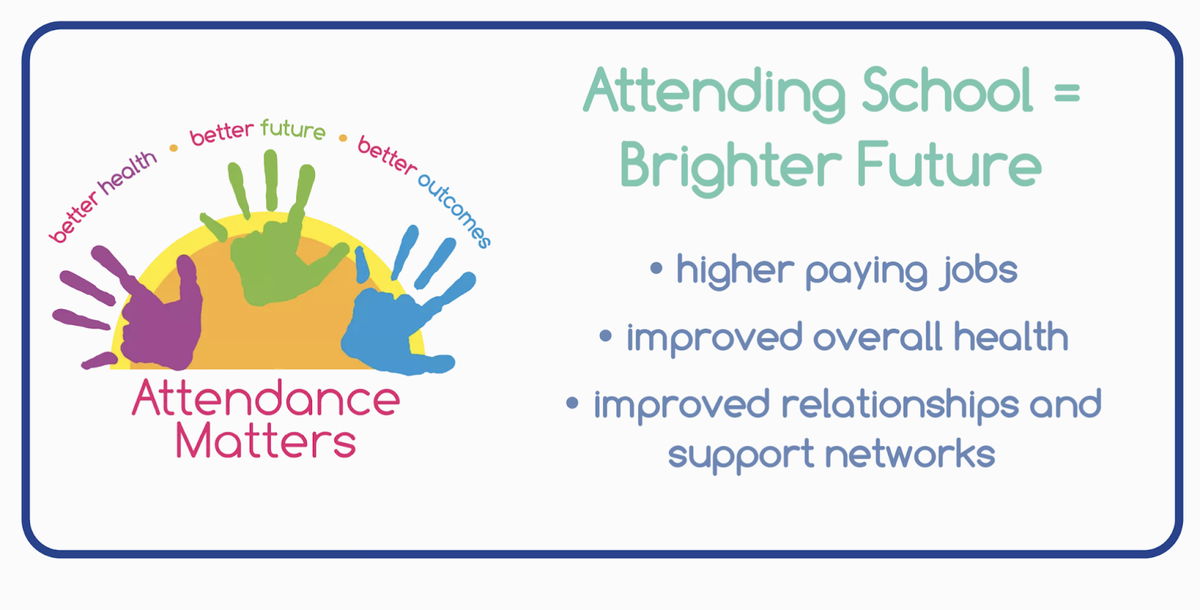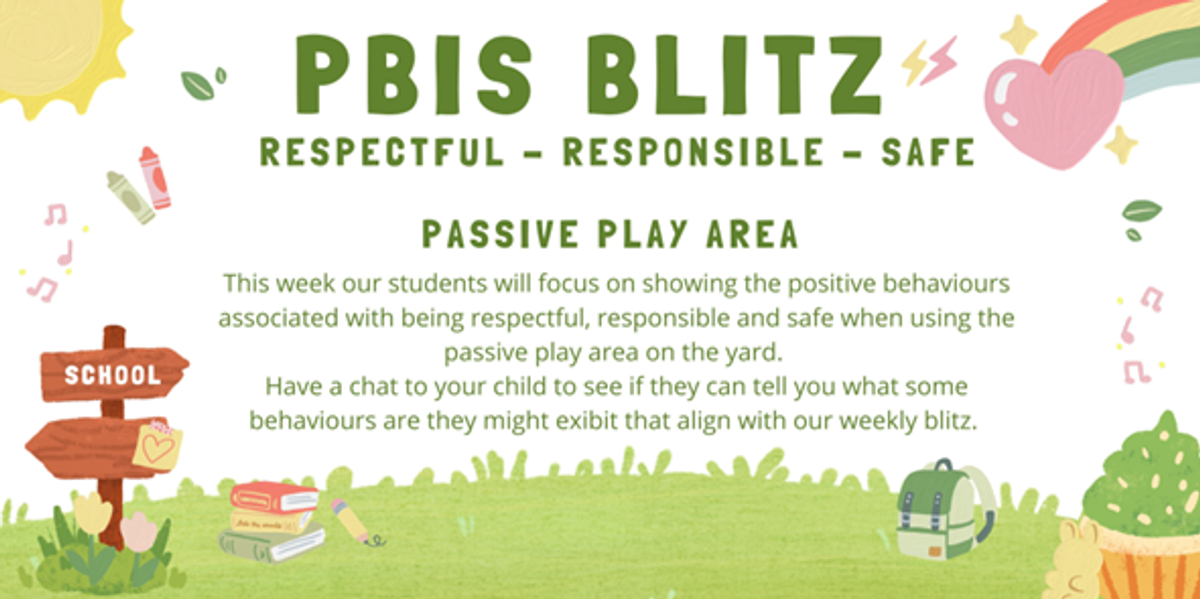Pastoral Wellbeing

Attendance
Thank you to all families for your continued support in ensuring students are at school and ready to learn each day.
Our whole school attendance for Week 2 was 91.46%, with 178 students attending every day of the week. We also saw a rise in the number of students with very high attendance (90–98%), increasing by 11 students from the previous week.
A special mention to the following classes for their strong attendance in Week 2:
- 3JS – 97.62%
- Prep HE – 96.19%
- Prep AC – 94.67%
- 3JW – 94.24%
- 1JW – 93.63%
Well done to these classes for leading the way. Developing strong attendance habits early supports long-term success and connection at school. Let’s keep up the great work together!
Why Attendance Matters
- Missing just one day a fortnight adds up to 4 weeks of missed school each year.
- Students who attend 90% or more of school are more likely to stay on track with their learning.
- Developing good attendance habits early sets students up for success long-term.
How You Can Help
- Establish routines: What does it look like?
- Having a consistent bedtime (e.g. 7:30–8:00pm for primary-aged children)
- Packing bags, laying out uniforms, and preparing lunches the night before
- Waking up at the same time each school day with a calm morning routine
- Schedule appointments outside school hours : What does it look like?
- Booking GP, dentist, and specialist appointments after 3:30pm or during school holidays
- Letting the school know early if an unavoidable appointment will cause a late arrival or early pickup
- Avoiding holidays during term time wherever possible
- Talk positively about school: What does it look like?
- Asking your child what they enjoyed about their day
- Showing interest in their learning or friendships
- Speaking about school routines, teachers, and learning with encouragement and optimism
- Reach out if your child is struggling: What does it look like?
- Emailing or calling your child’s teacher to discuss concerns early
- Letting us know if your child is anxious, unsettled, or reluctant to come to school
- Working with the school to develop a plan or supports if needed
Let’s keep working together to ensure every child is at school, on time, and ready to learn! Your classroom teachers and support staff will be able to give you some great advice if you’re seeking some!
If your family is finding it difficult to get to school regularly, please know that we are here to help. You’re encouraged to speak with your child’s classroom teacher or reach out to our Wellbeing Team – Mrs. Antonowicz, Mrs. McSweeney or Mr. Podosky – for support.
We can assist in a variety of ways, including:
- Creating a positive morning routine to reduce stress before school
- Helping your child feel safe and connected at school
- Offering support for separation anxiety or school-based worries
- Adjusting your child’s transition into the classroom
- Working with families to make a plan that suits your situation
Please don’t hesitate to reach out – we’re here to work with you and your child every step of the way.
If you know that your child won’t be attending school, please contact the office and let them know that your child will be away!
PBIS
Each week we have a routine or a blitz that we are focusing on. This week’s is about how to use our Passive Play Area.
Supporting Positive Behaviour at St. Kilian’s
At St. Kilian’s, we are committed to creating a safe and respectful learning environment for all students. To support this, we have clear expectations around attention signals, hands-on behaviour, and problem-solving.
📚 Classroom Routines: Ready in 5, Entry & Exit
At St Kilian’s, we use consistent routines like “Ready in 5,” classroom entry, and exit routines to help students feel calm, focused, and ready to learn. These routines create clear expectations and reduce confusion during transitions, supporting a respectful and settled learning environment. When students know what to expect, they feel more secure and confident at school.
Why it's important: Routines help build independence, responsibility, and a sense of belonging. They allow more time for learning and reduce distractions.
How you can support at home:
- Establish regular morning and evening routines to build consistency
- Use short countdowns or reminders to help with transitions
- Encourage independence by having children pack their own school bags
- Talk about the importance of being ready to listen and learn
🌿 Leave No Trace
This term, we’re focusing on the idea of Leave No Trace—a simple but powerful way of encouraging students to take responsibility for their environment and belongings. It means leaving spaces as we found them (or better), cleaning up after ourselves, and respecting shared materials and areas. We connect this to our school values of being respectful, safe, and responsible.
Why it's important: Learning to care for our spaces and the environment helps students build responsibility, pride in their school, and awareness of how their actions affect others.
How you can support at home:
- Encourage your child to tidy up after themselves
- Involve children in caring for shared spaces like the kitchen or living room
- Remind them to look after their belongings and school materials
- Talk about small ways to help the environment, like turning off lights or reusing items
Problem-Solving – Getting Help from an Adult
When problems arise, we encourage students to use their words and seek help from a teacher or staff member if they cannot solve the issue on their own. This might be if someone isn’t following the rules, if they feel unsafe, or if they need help working through a disagreement. Teachers are always available to listen, guide students through a solution, and ensure fairness.
💡 How Families Can Support at Home:
- Model problem-solving language – Phrases like “Can we find a way to share?” or “Let’s take turns” help students learn effective communication.
- Encourage independence – Before stepping in, ask “How do you think you could solve this?” to help them develop their own strategies.
- Remind students that teachers are here to help – Let them know it’s always okay to ask a teacher for help when needed.
By working together, we can continue to make St. Kilian’s a safe, respectful, and supportive place for everyone. Thank you for your partnership in reinforcing these expectations at home!


